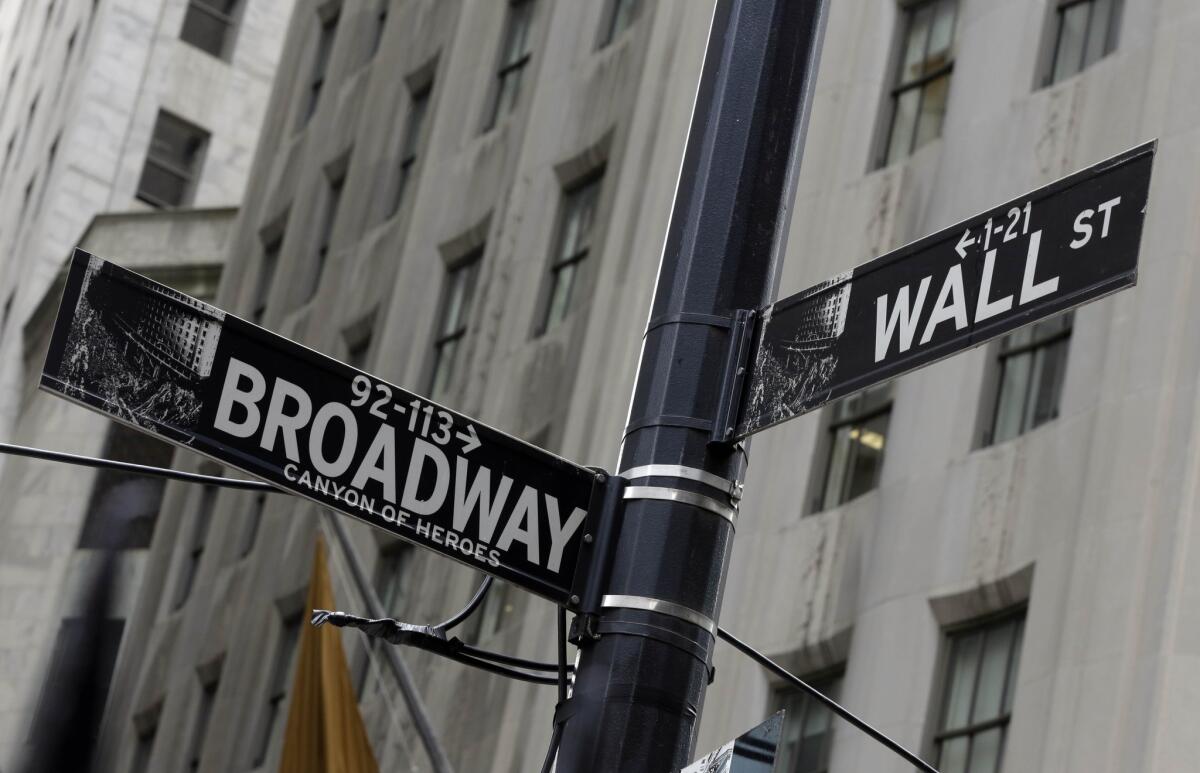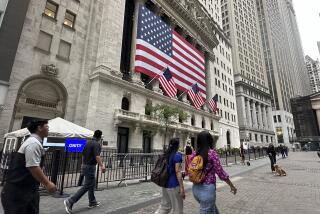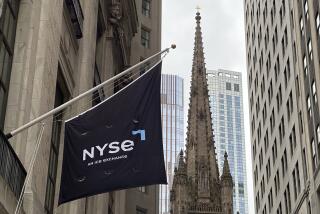Stocks have their worst day in a month as virus cases surge

U.S. stocks fell sharply Monday as a troubling increase in coronavirus counts put investors in a selling mood. The skid came as doubts mount on Wall Street that Washington will come through with more stimulus for the economy before election day.
The Standard & Poor’s 500 index slid 1.9%, its biggest single-day decline in more than a month. The Dow Jones industrial average dropped 650.19 points after having been down more than 960 during the heaviest selling. Technology companies drove much of the broad sell-off, though losses in communications services, financial and industrial stocks helped weigh down the market. Energy stocks also dropped in tandem with crude oil prices.
Stocks also fell across much of Europe and Asia. In another sign of caution, Treasury yields pulled back after touching their highest level since June last week.
The S&P 500 fell 64.42 points to 3,400.97. The Dow slumped 2.3% to 27,685.38. The Nasdaq composite lost 189.34 points, or 1.6%, to 11,358.94. Smaller company stocks also took heavy losses, knocking the Russell 2000 index down 35.29 points, or 2.2%, to 1,605.21.
Coronavirus counts are surging in much of the United States and Europe, raising concerns about more damage to the still-weakened economy. The U.S. came very close to setting back-to-back record daily infection rates Friday and Saturday. In Europe, Spain’s government declared a national state of emergency Sunday that includes an overnight curfew, while Italy ordered restaurants and bars to close each day by 6 p.m. and shut down gyms, pools and movie theaters.
Hopes are fading, meanwhile, that Washington will be able to provide more support for the economy anytime soon. House Speaker Nancy Pelosi (D-San Francisco) and Treasury Secretary Steven T. Mnuchin weren’t able to reach an agreement in a phone call Monday, according to a Pelosi aide. The two have been discussing a potential deal to send cash to most Americans, restart supplemental benefits for laid-off workers and provide aid to schools, among other things.
Deep partisan differences remain on Capitol Hill, and time is running out for anything to happen before the Nov. 3 election. Any compromise reached between House Democrats and the White House would also probably face stiff resistance from Republicans in control of the Senate. Another concern is that possible delays in sorting out the results of next week’s elections could end up pushing a stimulus deal back indefinitely.
Worries about the diminishing prospects for more stimulus in the short term helped drive the S&P 500 to a 0.5% drop last week, its first weekly loss in the last four.
The U.S. economy has recovered a bit since the stay-at-home restrictions that swept the country early this year eased, and economists expect a report Thursday to show it grew at an annual rate of 30.2% during the summer quarter after shrinking 31.4% during the second quarter.
But momentum has slowed recently after a prior round of supplemental unemployment benefits and other stimulus that Congress approved this year expired.
Stocks of companies that need the virus to abate and the economy to return to normal logged some of the sharpest losses Monday.
Norwegian Cruise Line Holdings fell 8.4%, Marathon Oil dropped 7% and United Airlines lost 7%.
Energy stocks recorded the largest loss among the 11 sectors that make up the S&P 500, falling in concert with oil prices. All told, about 92% of the stocks in the S&P 500 closed lower.
Among the market’s few gainers were companies that can succeed even in a stay-at-home economy. Zoom Video Communications gained 1.2%.
Amazon fared much better than the broader market, recovering from an early loss to close 0.1% higher, while Apple lost an early gain and ended flat. Expectations are high for them, and analysts say they’ll report strong results for their latest quarter this week. They and other Big Tech stocks have soared through the pandemic on hopes their growth will only continue as work-from-home and other trends that benefit them accelerate.
This week is the busiest of this quarter’s earnings season, with more than a third of the companies in the S&P 500 index scheduled to report. Besides Amazon and Apple, Ford Motor, General Electric and Google’s parent company, Alphabet, are also on the docket.
Across the S&P 500, profit reports for the summer have been mostly better than Wall Street had feared, though they’re still on pace to be more than 16% lower than year-earlier levels. Through Friday, 84% of S&P 500 companies reported better results than analysts had forecast, according to FactSet. If that level holds, it would be the best since at least 2008, when FactSet’s records begin.
European and Asian markets closed lower. The yield on the 10-year Treasury fell to 0.80% from 0.85% late Friday.
More to Read
Inside the business of entertainment
The Wide Shot brings you news, analysis and insights on everything from streaming wars to production — and what it all means for the future.
You may occasionally receive promotional content from the Los Angeles Times.







